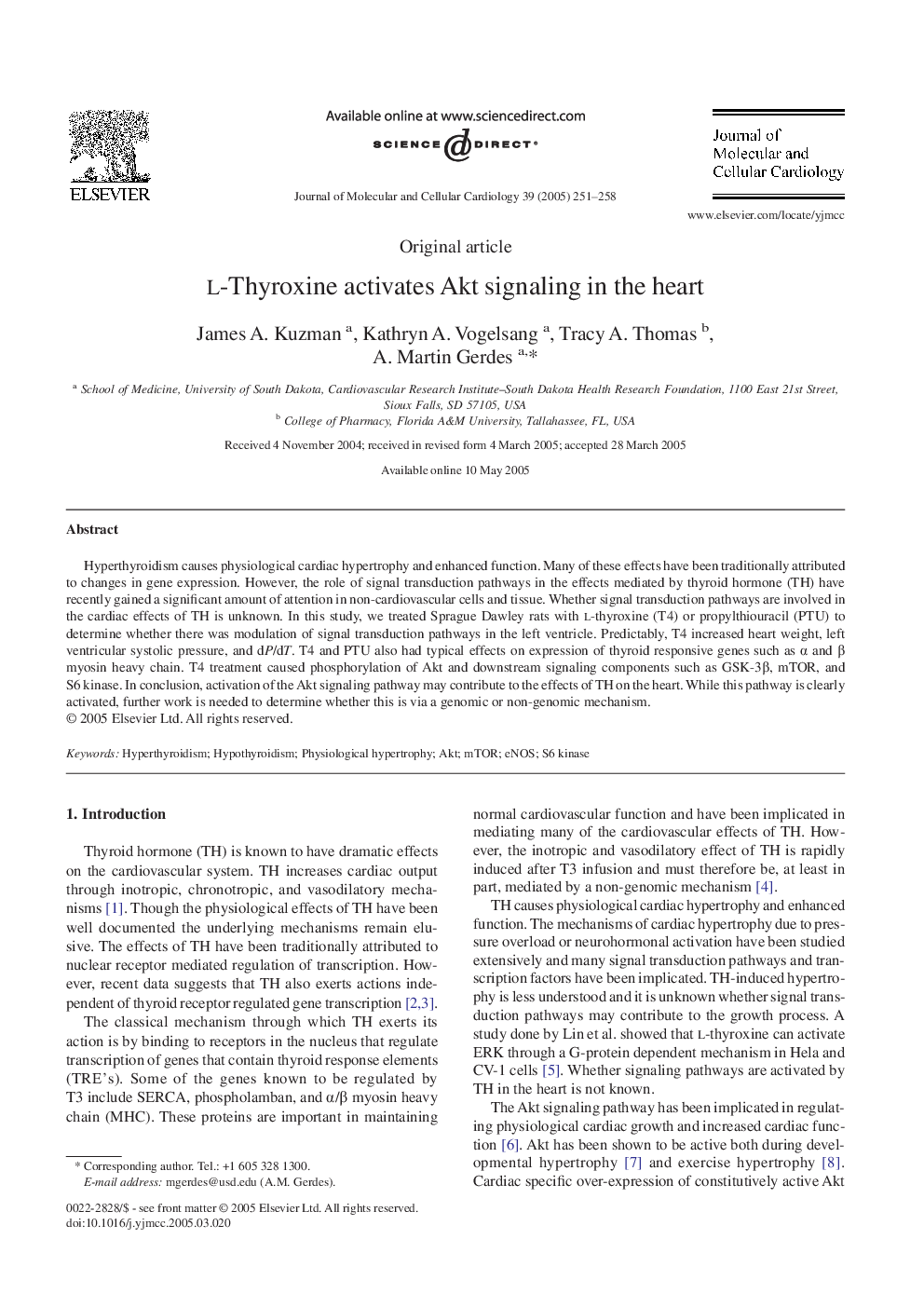| Article ID | Journal | Published Year | Pages | File Type |
|---|---|---|---|---|
| 10954347 | Journal of Molecular and Cellular Cardiology | 2005 | 8 Pages |
Abstract
Hyperthyroidism causes physiological cardiac hypertrophy and enhanced function. Many of these effects have been traditionally attributed to changes in gene expression. However, the role of signal transduction pathways in the effects mediated by thyroid hormone (TH) have recently gained a significant amount of attention in non-cardiovascular cells and tissue. Whether signal transduction pathways are involved in the cardiac effects of TH is unknown. In this study, we treated Sprague Dawley rats with L-thyroxine (T4) or propylthiouracil (PTU) to determine whether there was modulation of signal transduction pathways in the left ventricle. Predictably, T4 increased heart weight, left ventricular systolic pressure, and dP/dT. T4 and PTU also had typical effects on expression of thyroid responsive genes such as α and β myosin heavy chain. T4 treatment caused phosphorylation of Akt and downstream signaling components such as GSK-3β, mTOR, and S6 kinase. In conclusion, activation of the Akt signaling pathway may contribute to the effects of TH on the heart. While this pathway is clearly activated, further work is needed to determine whether this is via a genomic or non-genomic mechanism.
Related Topics
Life Sciences
Biochemistry, Genetics and Molecular Biology
Cell Biology
Authors
James A. Kuzman, Kathryn A. Vogelsang, Tracy A. Thomas, A. Martin Gerdes,
